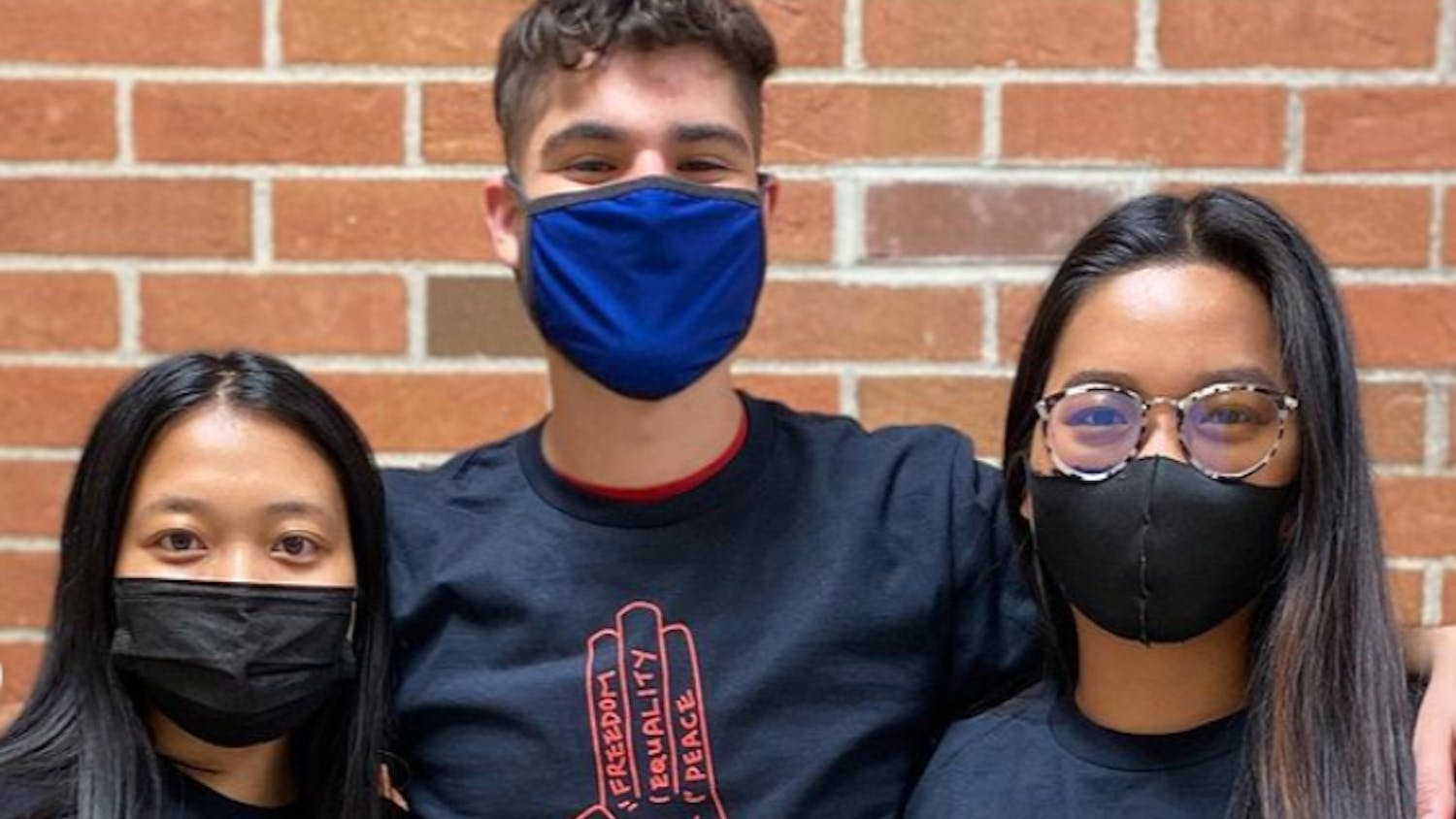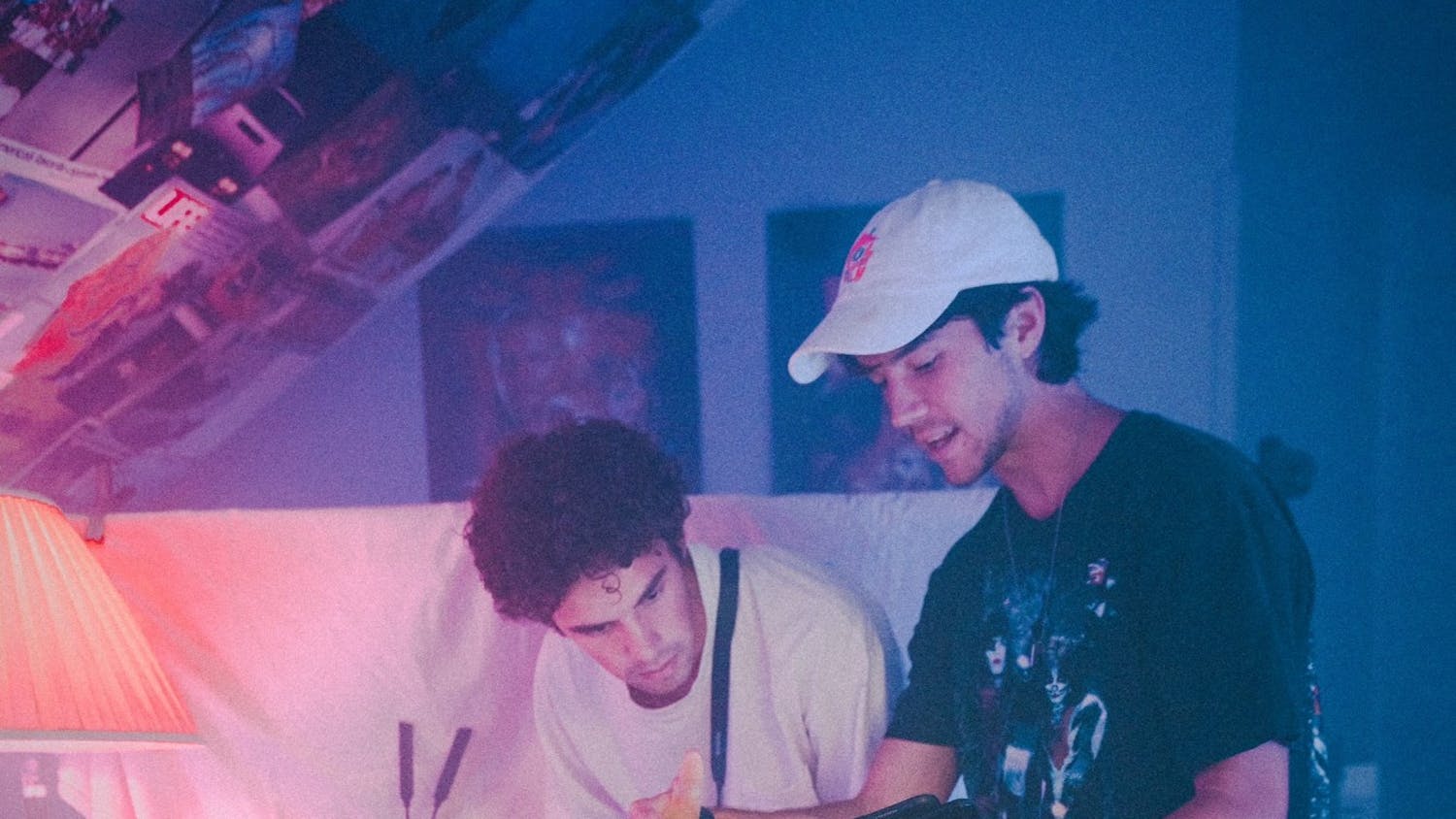In his sixth studio album, “Call Me If You Get Lost,” Tyler Gregory Okonma, better known as Tyler, The Creator, taps into ‘90s hip-hop tradition while also paying tribute to his past releases.
It’s been two years since singer, songwriter, director, producer and fashion designer Okonma’s latest release of “Igor,” an album that topped the charts and became the singer’s most popular project. Following themes of heartbreak, love and jealousy, “Igor” was a coherent and storyline-based album that displayed genres of rap, R&B and funk.
He’s been a bit of an unpredictable artist after his album “Flowerboy” in 2017, which completely revamped the sound that the rapper had been continuously producing. Leaning into a more chill and indie genre with a feature from Rex Orange County in the opening track — an artist who fits into the indie-pop landscape — Okonma seemed to be focusing on an entirely different aesthetic.
Because of this, fans didn’t know what they would receive from the new album, and if any were expecting something along the same lines of the two previous releases, what the artist presents in “Call Me If You Get Lost” supersedes all expectations.
The album acts as a redefining project for Okonma where he has looked back, taken the best aspects of his past works and combined them to make something even greater.
In fact, in the initial promotions for the album, Okonma released the cover art for the project displaying an identification card for someone named Tyler Baudelaire, an entirely new character and persona, remaking his image for this release entirely.
While there has been speculation as to whether this new character of Baudelaire is a deliberate connection to the book series “A Series of Unfortunate Events” or the French poet Charles Baudelaire, there has been nothing confirmed from the singer as to whether this was intentional.
Creating characters has been something Okonma has been doing with most of his releases. One character fans might be familiar with is Wolf Haley, who Okonma references heavily in his album Wolf, and also appeared previously in his album Goblin, specifically his song “Yonkers.”
In the opening track of “Call Me If You Get Lost,” “Sir Baudelaire,” Okonma says that Haley is back.
In a GOLF podcast episode where Okonma has a conversation with fellow artist Vince Staples, Okonma explains how Haley acts as his alter-ego, someone who he wants to be. He also lists Haley as the director of his music videos, perhaps a feeling that only the version of himself that he wants to be could ever direct these videos.
It’s with these videos that Okonma also creates an entire universe for “Call Me If You Get Lost,” where each release feels even more real. It brings his musical and lyrical genius to life, further proving the young sensation’s talent and right to have risen to the top of the music industry.
The album plays like a mix-tape with DJ Drama showing up in each song, a producer who is a notable part of the hip-hop world, as well as features from many other artists.
The sound is a return to Okonma’s classic weirdo rap genre, reminiscent of his Odd Future days, a group the artist created originally with six other teenaged Southern Californian musicians in 2007 when Okonma was only 16 years old, as well as his album Goblin, which was released in 2011.
However, unlike Goblin, which presented lyrics that seemed to be thrown around and thrown together, the lyrics in “Call Me If You Get Lost” present the same sound while also providing meaning and story, showing the growth Okonma has made as an artist.
“Massa,” the seventh track on the album, speaks to the artist’s struggles growing up, as well as the struggles he now faces with fame and wealth. Speaking to his mother living in a shelter when his song “Yonkers” released and how he finally knew he had succeeded when he was able to get her out fulfills a vulnerability the musician was sometimes unable to get across in Goblin.
Soon will come “Manifesto,” which again focuses on his past, but this time more as an artist. Okonma looks back on his controversial past as a musician, saying, “I was canceled before canceled was with Twitter fingers.”
He also addresses social issues, acknowledging the struggle and pressure he feels as a Black artist to be a voice and a leader, but ultimately saying that he doesn’t have the answer. He sings, “I know I ain’t got the answer, but I ain’t gon’ cheerlead with y’all just to be a dancer.”
This song is an acknowledgement of his past and present.
“Momma Talk” comes a couple tracks later where we get Okonma’s mother giving a talk on the teachers and parents that would target Okonma when he was young. She talks about how she will defend Okonma to the end, a sweet moment near the end of the album, once again giving it a mix-tape nostalgic feeling where people you know would talk between tracks.
With all of these vulnerable and meaningful lyrics, there is also a balance of fun and summer-sounding songs. "Wusyaname” was a pre-release to the album, exciting listeners while also giving them a taste of the album to come.
My personal favorite on the album comes at track 10, “Sweet/I Thought You Wanted To Dance.” The 10-minute two-parter goes from R&B to reggae about halfway through, reggae being a genre no one would expect from Okonma. It’s fun and the transitions are smooth, reminding me of “Gone Gone/Thank You” from Igor.
I’m always pleasantly surprised whenever Okonma releases something new. Whether it be a new music video with bright colors and deliberate cinematography or simply a new Instagram post, anything fresh the artist puts out will probably define my life for at least a week or two.
So if you spot me around campus, there’s a large chance I’m wearing my “Call Me If You Get Lost” shirt or GOLF brand hat.
Overall, Call Me If You Get Lost is a redefining lyrical universe created with lyrical finesse and nostalgia in every track. 5/5 stars.




